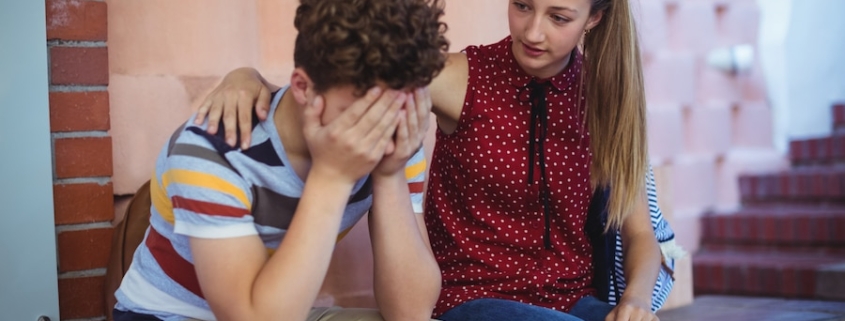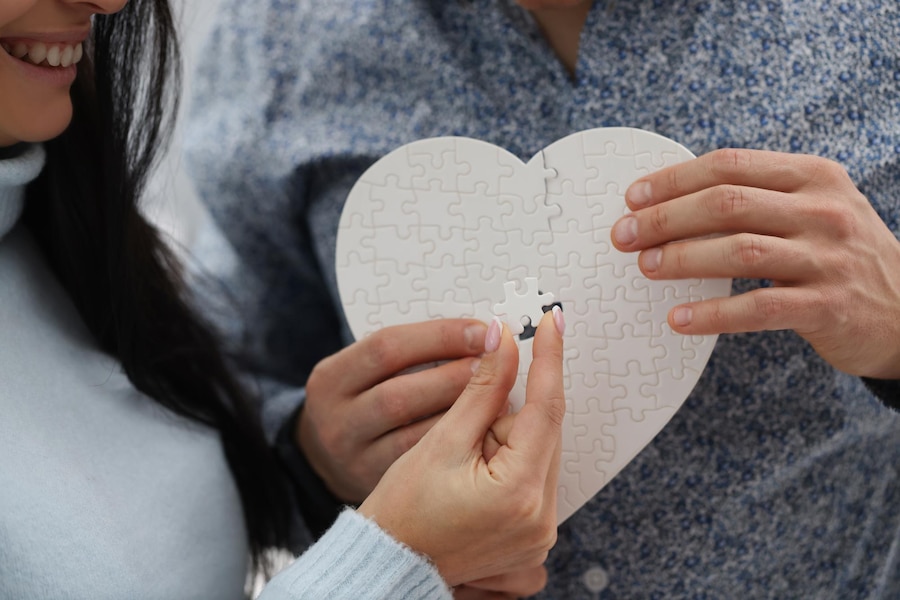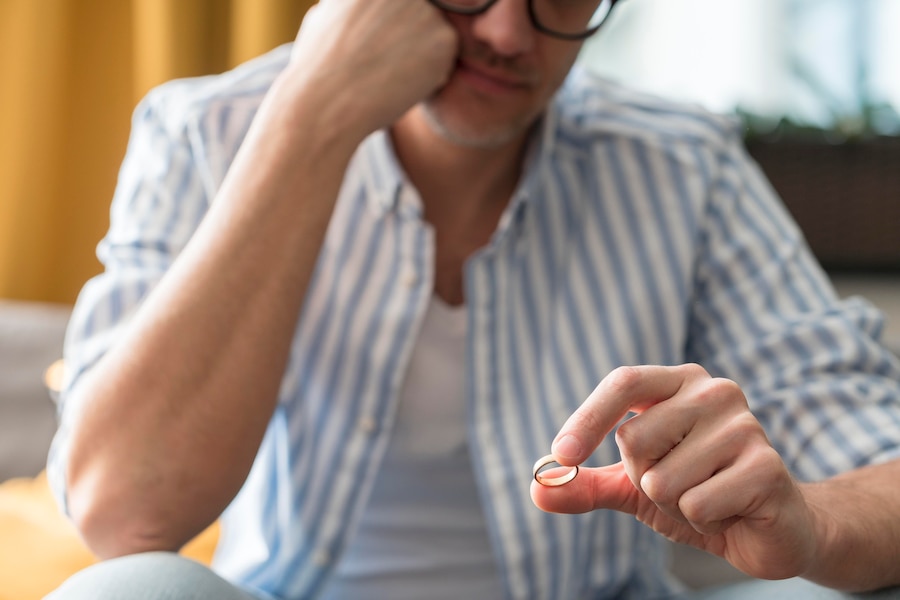Understanding When to Walk Away from an Alcoholic Loved One
Deciding whether to leave a partner struggling with alcoholism is one of the most heart-wrenching decisions you may ever face. The emotional toll of loving someone who is battling addiction can leave you feeling torn between hope and despair. This guide from Couples Rehab is designed to help you navigate this difficult situation by exploring the signs it’s time to leave an alcoholic, how to leave safely, and the resources available to support you. Whether you’re asking yourself, “Should I leave my alcoholic spouse?” or seeking help for leaving an alcoholic relationship, this post offers clarity and actionable advice.
Understanding Alcoholism and Its Impact
What Is Alcohol Use Disorder (AUD)?
Alcohol Use Disorder (AUD), commonly referred to as alcoholism, is a chronic condition where an individual cannot control their drinking despite negative consequences. It affects their physical health, mental well-being, and relationships. AUD is a progressive disease, meaning it often worsens over time without intervention.
How Alcoholism Affects Relationships
Living with an alcoholic partner can feel like an emotional rollercoaster. The unpredictability of their behavior, broken promises, and the strain of managing their addiction can leave you feeling isolated and overwhelmed. Over time, the relationship may become defined by mistrust, resentment, and emotional exhaustion.
Signs It’s Time to Leave an Alcoholic
Recognizing when to leave an alcoholic partner is crucial for your well-being. Here are some key signs that it may be time to make that difficult decision:
1. Broken Promises and Relapses
If your partner repeatedly promises to quit drinking but fails to follow through, it can erode trust and hope. This cycle of promises and relapses is a common pattern in alcoholism and can leave you feeling emotionally drained.
2. Emotional or Physical Abuse
Alcohol can lower inhibitions and increase aggression, leading to abusive behavior. If your partner becomes verbally, emotionally, or physically abusive when drinking, your safety and well-being must come first.
3. Neglect of Responsibilities
When alcoholism takes priority, your partner may neglect their responsibilities at work, home, or as a parent. This can place an unfair burden on you, leading to stress and resentment.
4. Financial Instability
Alcoholism often leads to financial problems, whether from excessive spending on alcohol, job loss, or legal issues. If your partner’s addiction is causing financial strain, it’s a significant red flag.
5. Decline in Your Mental Health
Living with an alcoholic can take a toll on your mental health, leading to anxiety, depression, or a loss of self-esteem. If you feel constantly stressed, unhappy, or trapped, it may be time to consider leaving.
6. Refusal to Seek Help
If your partner refuses to acknowledge their addiction or seek treatment, the situation is unlikely to improve. Without a commitment to change, the cycle of addiction will continue.
How to Leave an Alcoholic Safely
Leaving an alcoholic partner requires careful planning to ensure your safety and well-being. Here are steps to help you leave safely:
1. Create a Detailed Plan
Before leaving, consider your financial situation, living arrangements, and support system. Make sure you have a safe place to go and the resources you need to start over.
2. Consult a Legal Professional
If you’re married or share assets, consult a lawyer to understand your rights and options. They can guide you through the legal process of separation or divorce.
3. Build a Support Network
Reach out to trusted friends, family, or support groups like Al-Anon. These networks can provide emotional and practical support during this challenging time.
4. Prioritize Your Safety
If you’re concerned about your safety, take precautions such as changing your phone number, securing your home, or obtaining a restraining order if necessary.
5. Communicate Your Decision Clearly
When you’re ready to leave, communicate your decision calmly and firmly. Avoid blaming or shaming your partner, but make it clear that you’re setting boundaries for your well-being.
6. Focus on Self-Care
Leaving an alcoholic partner can be emotionally taxing. Prioritize self-care by seeking therapy, engaging in physical activity, and surrounding yourself with positive influences.
Should I Leave My Alcoholic Spouse?
Weighing the Pros and Cons
Deciding whether to leave an alcoholic spouse is deeply personal and requires careful thought. Here are some factors to consider:
Pros of Leaving:
- Improved Mental Health: Removing yourself from a toxic environment can reduce stress and improve your emotional well-being.
- Safety: If your spouse is abusive, leaving ensures your physical and emotional safety.
- Financial Stability: Leaving can help you regain control over your finances.
- Opportunity for Growth: Ending the relationship can open doors to personal growth and a fresh start.
Cons of Leaving:
- Emotional Pain: Ending a long-term relationship can be heartbreaking.
- Financial Challenges: Separation or divorce may lead to financial strain.
- Impact on Children: If you have children, leaving can be emotionally challenging for them.
Seeking Professional Guidance
If you’re unsure about your decision, consider speaking with a therapist or counselor. They can help you process your emotions and make an informed choice.
Help for Leaving an Alcoholic Relationship
1. Therapy and Counseling
Individual therapy can help you process your emotions and develop coping strategies. Couples therapy may also be an option if both partners are willing to work on the relationship.
2. Support Groups
Organizations like Al-Anon and Codependents Anonymous (CoDA) offer support for individuals affected by a loved one’s addiction. These groups provide a safe space to share experiences and gain encouragement.
3. Legal Assistance
Consult a family lawyer to understand your rights and navigate the legal aspects of separation or divorce. They can help protect your interests during this process.
4. Financial Planning
A financial planner can help you assess your financial situation and create a plan for independence. This may include budgeting, saving, and exploring new income opportunities.
5. Safety Resources
If you’re in an abusive relationship, contact a domestic violence hotline or shelter for assistance. They can help you create a safety plan and provide resources for leaving safely.
Assessing When to Leave a Relationship with an Alcoholic
Leaving an alcoholic partner is never an easy decision, but it may be necessary for your well-being and safety. By recognizing the signs it’s time to leave an alcoholic, planning carefully, and seeking support, you can take steps toward a healthier, happier future. Remember, you’re not alone, and there are resources available to help you through this challenging time.
If you’re asking yourself, “Should I leave my alcoholic spouse?” take the time to reflect on your situation, seek professional guidance, and prioritize your well-being. Leaving an alcoholic relationship is a courageous step toward reclaiming your life and finding peace.
Additional Resources
- Al-Anon Family Groups: www.al-anon.org
- National Domestic Violence Hotline: 1-800-799-SAFE (7233)
- Substance Abuse and Mental Health Services Administration (SAMHSA): www.samhsa.gov
- Codependents Anonymous (CoDA): www.coda.org
By following the advice and resources outlined by Couples Rehab, you can make an informed decision about leaving an alcoholic partner and take the necessary steps to protect your well-being and future.

















